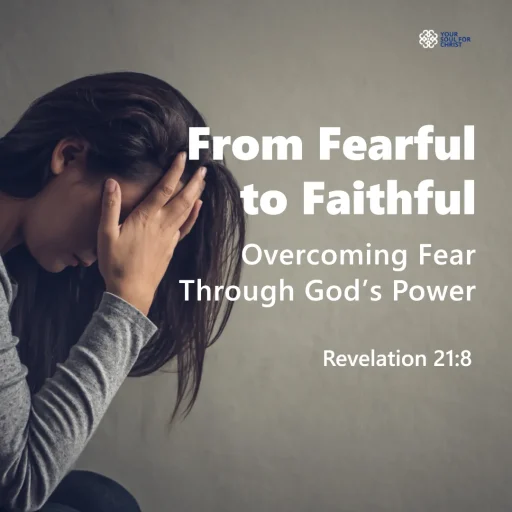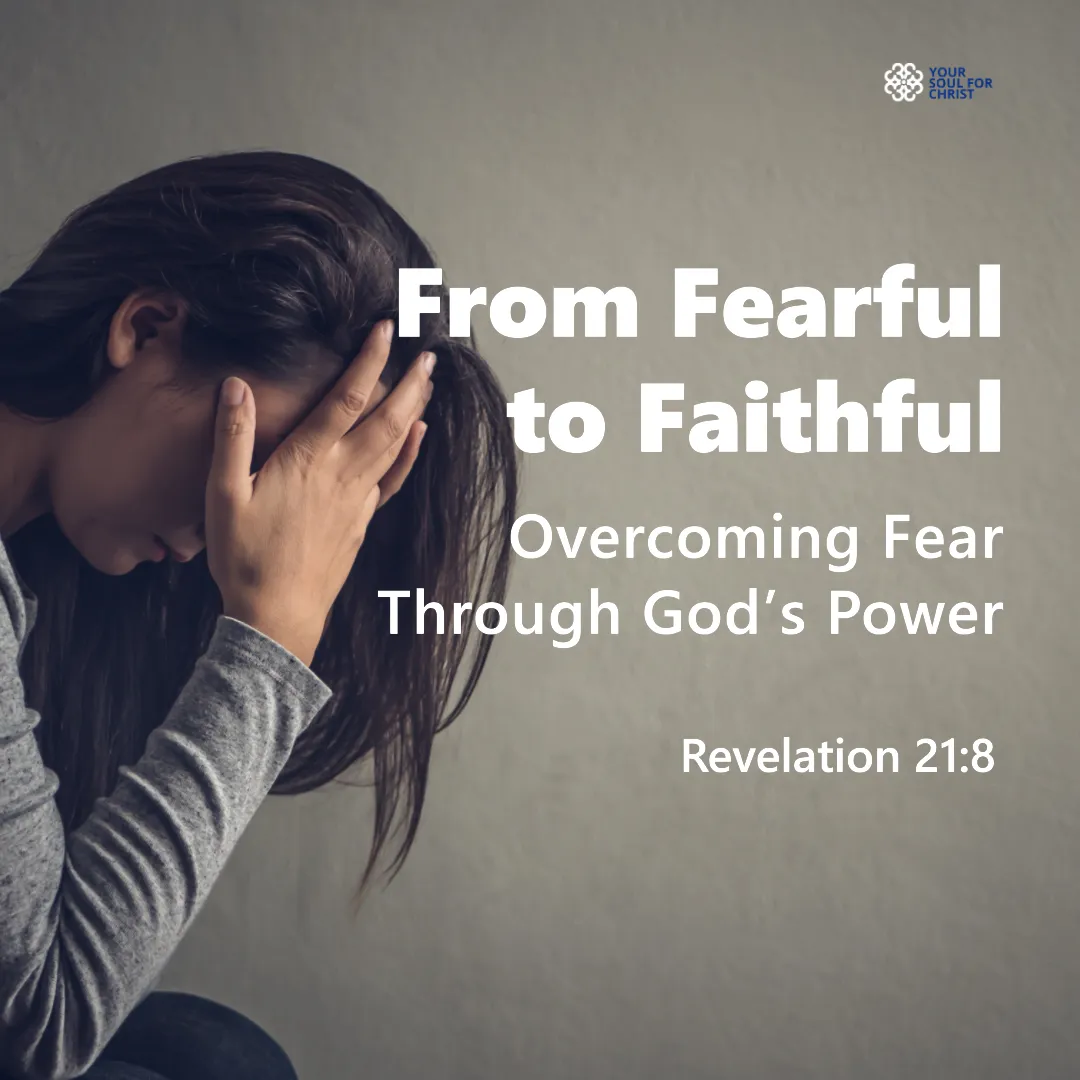But the fearful, and unbelieving, and the abominable, and murderers, and whoremongers, and sorcerers, and idolaters, and all liars, shall have their part in the lake which burneth with fire and brimstone: which is the second death.
Revelation 21:8 KJV
Revelation 21:8 stands as a solemn warning and a call to courage. It contrasts those who overcome by faith with those who surrender to fear. The verse begins not with the violent or the corrupt, but with “the fearful”, placing fear at the root of all spiritual collapse. God does not condemn human emotion; He condemns hearts that allow fear to silence faith. The cowardly turn away when faith demands risk. They live by self-preservation rather than trust, and that choice shapes their eternal destiny.
Scripture reveals this tension between fear and faith through the lives of God’s servants. Moses, the great leader of Israel, felt fear when God called him at the burning bush. He said, “Who am I that I should go to Pharaoh and bring the Israelites out of Egypt?” (Exodus 3:11). His fear grew deeper when he protested, “O Lord, I have never been eloquent… I am slow of speech and tongue.” (Exodus 4:10). Moses looked at his weaknesses instead of God’s power. Yet, God did not condemn him. God reassured him, “I will be with you.” Moses still trembled, but he obeyed. That obedience became faith in action.
Moses’ story reminds us that fear itself does not define cowardice; surrender to fear does. Moses felt fear, but he did not let it rule him. He walked into Pharaoh’s court, staff in hand, with only God’s promise as his weapon. His courage did not come from confidence in himself but from confidence in God’s faithfulness. Every plague, every step through the Red Sea, every confrontation with rebellion in the wilderness, revealed a man who learned to replace fear with faith. His transformation shows that even trembling hearts can grow bold when they trust in God’s presence.
Caleb, one of the twelve spies sent into Canaan, stands as another example of faith conquering fear. When ten of the spies spread fear among the Israelites, saying, “We can’t attack those people; they are stronger than we are” (Numbers 13:31), the entire nation trembled. Fear spread faster than truth. The people wept, complained, and prepared to turn back to Egypt. But Caleb silenced the crowd and declared, “We should go up and take possession of the land, for we can certainly do it.” (Numbers 13:30). Caleb saw the same giants as everyone else, but he viewed them through the lens of God’s power, not human weakness.
The Israelites’ fear led them into disobedience and cost them the Promised Land. God declared that the fearful generation would die in the wilderness, but Caleb would live to enter the promise because he “followed the Lord wholeheartedly” (Numbers 14:24). His courage stands as a living contrast to the cowardly in Revelation 21:8. The fearful saw giants; Caleb saw God. They turned back; Caleb pressed forward. The fearful died; Caleb inherited the promise. Fear destroyed one generation, while faith preserved one man.
The stories of Moses and Caleb teach that God never calls His people to a life free from fear; He calls them to a faith that conquers fear. Moses faced his insecurity, Caleb faced the crowd’s panic, and both chose trust over retreat. Revelation 21:8 warns against a heart that stops trusting. When fear directs decisions, unbelief takes root, and unbelief leads to spiritual death. The fiery lake of burning sulfur — the second death — becomes the tragic end of those who let fear drive them away from God’s truth.
Yet, Scripture never leaves fear as the final word. God transforms cowards into conquerors. The same Spirit that filled Moses and strengthened Caleb now lives within every believer. Paul declares in 2 Timothy 1:7, “For God gave us a spirit not of fear but of power and love and self-control.” That Spirit enables every follower of Christ to face opposition, loss, and uncertainty with unshakable faith.
Living It Out
Revelation 21:8, then, does not exist to terrify the faithful but to awaken courage. It urges believers to rise above fear and to live boldly for the God who conquered death. The fearful will always find reasons to retreat, but the courageous will always find strength in God’s promises. Moses learned it at the burning bush, Caleb proved it before the crowd, and every believer must live it in daily obedience. Fear ends in death, but faith always leads to life.

